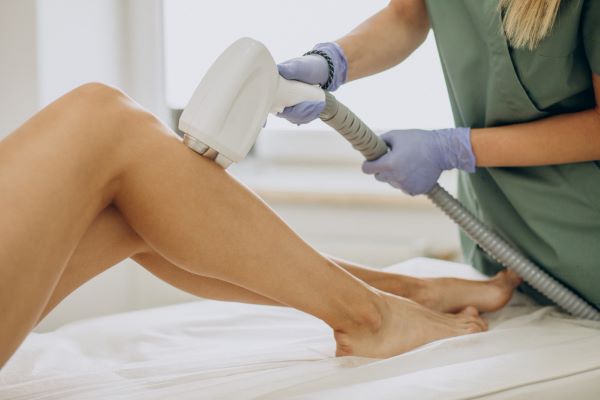
When Is The Right Time For A Hair Transplant After Pregnancy?
Motherhood is an incredible journey, but it comes with unexpected changes—one of the most frustrating being postpartum hair loss. If you’re struggling with excessive shedding after childbirth, you’re not alone. While this is a normal phase, many women tend to explore solutions like hair transplant in Kolkata to restore their hair’s fullness, but the question is, when is the right time?
If you are suffering from prolonged hair thinning that doesn’t improve over time, consider the Follicular Unit Extraction (FUE) hair transplant in Kolkata —a minimally invasive method designed for natural-looking results.
Understanding Postpartum Hair Loss
During pregnancy, increased estrogen levels help hair grow thicker and stronger. After childbirth, estrogen levels drop, triggering a phase of excessive shedding. This natural process, called postpartum hair loss, usually peaks around three to six months after delivery and can last up to a year.
The good news? For most women, this shedding is temporary, and hair regrows on its own. However, if your hair doesn’t regain its fullness after a year or if you notice significant thinning in specific areas, a more permanent solution like a hair transplant may be worth considering.
The Right Time For a Hair Transplant After Pregnancy?
Timing is crucial when considering a Follicular Unit Extraction(FUE) hair transplant after childbirth. Since postpartum hair loss is a temporary condition for most women, it’s recommended to wait at least 6 to 12 months before opting for surgery. This waiting period allows your body to stabilize hormonally, helping you assess whether hair regrowth is happening naturally.
Consulting a hair transplant specialist in Kolkata who can give you a clearer picture of whether your hair loss is due to natural postpartum shedding or a more lasting issue like androgenetic alopecia.
Other key factors to consider before undergoing an FUE hair transplant include the following:
- Nutritional levels – Ensure you are not deficient in iron, vitamin D, or biotin, as these deficiencies can contribute to hair loss.
- Breastfeeding status – If you’re breastfeeding, consult a doctor before undergoing the procedure, as certain medications used during the transplant (like anesthesia or antibiotics) may not be safe for your baby.
- Overall health – Pregnancy alters your immune system, so waiting until your body has fully recovered can lead to better transplant results.
Why FUE Hair Transplant Is A Preferred Option For New Moms
Follicular Unit Extraction (FUE) is one of the most advanced and minimally invasive hair transplant techniques available today. Unlike older methods that involve removing a strip of scalp, FUE extracts individual hair follicles from the donor area (usually the back of the head) and implants them into thinning or balding areas.
This makes the hair regrowth process normal and effective over time.
Benefits Of FUE For Postpartum Hair Loss:
- Minimally invasive – FUE doesn’t require stitches or large cuts. Thus making recovery smoother and faster.
- Natural-looking results – The new hair blends in perfectly with your existing hair, so no one can tell you had a transplant.
- Heals quickly – Most moms can get back to their routine within a few days.
- Great for small areas – If you have thinning around your hairline, FUE is a precise way to restore fullness without affecting the rest of your hair.
Related Content:
■ Embrace Your Elegance With FUE Hair Transplant
Can You Get An FUE Hair Transplant While Breastfeeding?
It’s generally advisable to wait until after you’ve stopped breastfeeding before undergoing an FUE hair transplant. While the procedure itself is safe, medications used during and after surgery (such as pain relievers or antibiotics) may transfer into breast milk. Speaking to both a hair restoration specialist and your doctor will help you determine the safest approach.
5 Essential Tips To Prepare For A Hair Transplant In Kolkata After Pregnancy
If you decide that an FUE hair transplant is right for you, follow these steps to ensure the best results:
- Check your hormone and iron levels – Get a blood test to rule out any underlying deficiencies that could affect hair growth.
- Choose an experienced surgeon – Look for a board-certified hair transplant specialist with experience in female hair restoration.
- Avoid chemical hair treatments – Skip hair coloring, perming, or straightening in the weeks leading up to your procedure to keep your scalp healthy.
- Plan for recovery – Arrange for extra help with childcare and household duties, as you’ll need time to rest post-surgery.
- Be patient with results – Hair growth after FUE takes time, with full results visible after 6 to 12 months.
Final Thoughts: Making The Right Choice For Your Hair
Postpartum hair loss can be distressing, but it’s often temporary. So, don’t panic! Before opting for an FUE hair transplant, give your body time to recover and consider natural solutions first. If hair thinning persists beyond a year and affects your confidence, reach out to our expert hair transplant surgeons in Kolkata. Find out what is the right hair restoration solution for you.
The most important thing? Make a decision that aligns with your well-being and long-term hair goals. With patience and expert guidance, you can restore your hair and your confidence—on your own terms.







